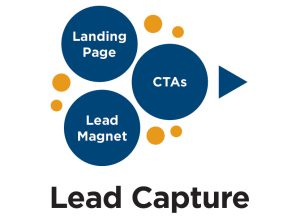The Role of AI and Machine Learning in Insurance Underwriting and Claims Processing
As independent insurance agents adapt to the ever-changing insurance industry, it’s crucial to keep abreast of the latest technological advancements that can enhance their services. One such innovation that is revolutionizing the industry is the integration of artificial intelligence (AI) and machine learning. In this blog post, we will explore how AI and machine learning are reshaping insurance underwriting and claims processing, enabling independent agents to offer more efficient and accurate services to their clients.

Enhancing Underwriting Efficiency
Underwriting, which involves evaluating and assessing risks associated with insurance policies, is a vital aspect of the insurance business. Traditionally, underwriters relied on manual analysis of extensive data, which was time-consuming and prone to human error. However, the introduction of AI and machine learning has significantly improved underwriting efficiency.
AI algorithms can analyze large volumes of data, including customer profiles, claims history, and market trends, to provide insights and predictions. This enables underwriters to make faster, more accurate decisions when evaluating risks, determining policy terms, and setting premiums. By automating routine tasks and offering valuable recommendations, AI and machine learning technology streamline the underwriting process, saving time and resources for independent insurance agents.
Improving Claims Processing
Another crucial area where AI and machine learning make a substantial impact is claims processing. Traditionally, claims adjusters manually reviewed documents such as accident reports, medical records, and policy information to assess the validity of a claim and calculate the appropriate payout. However, this manual approach was time-consuming and often led to delays in claim settlements.
With AI and machine learning, claims processing has become more efficient and accurate. Advanced algorithms can automatically analyze claim documents, extract relevant information, and assess the claim’s validity. By comparing data against historical patterns and industry benchmarks, AI systems can detect fraudulent claims, saving insurance companies significant amounts of money. This improved efficiency in claims processing allows independent insurance agents to provide faster and more satisfactory services to their clients.
The Benefits of AI and Machine Learning
The integration of AI and machine learning in insurance underwriting and claims processing offers several benefits for independent insurance agents:
Improved Accuracy
AI systems can quickly and accurately analyze vast amounts of data, minimizing the risk of errors or oversight in decision-making.
Enhanced Efficiency
By automating repetitive tasks, AI and machine learning free up agents to focus on higher-value activities, such as building relationships with clients and providing personalized advice.

Better Risk Assessment
AI algorithms can process complex data and identify patterns that humans may overlook, leading to more accurate risk assessments and better-tailored policies.
Reduced Fraud
Machine learning models excel at identifying fraudulent claims, helping insurance companies save money and maintain profitability while protecting the interests of their policyholders.
Challenges to Consider
While AI and machine learning offer significant benefits, their implementation comes with challenges that independent insurance agents should be aware of:
Data Quality and Availability
AI systems require high-quality and comprehensive data to deliver accurate insights. Ensuring data integrity and accessibility can be a hurdle for some agencies.
Ethical Considerations
The use of AI raises ethical concerns, particularly around privacy, transparency, and bias. Independent agents must navigate these issues responsibly to maintain trust with their clients.
Adoption and Integration: Implementing AI and machine
learning technologies may require significant investments in infrastructure, training, and integration with existing systems. Independent insurance agents should carefully plan and strategize their adoption to ensure a smooth transition and maximize the benefits.
Regulatory Compliance
The insurance industry is subject to strict regulations and compliance requirements. When utilizing AI and machine learning, agents must ensure that their systems adhere to legal and ethical guidelines, including fair treatment of policyholders and adherence to privacy laws.
Despite these challenges, the potential benefits of incorporating AI and machine learning in insurance underwriting and claims processing are significant. Independent insurance agents can leverage these technologies to streamline their operations, improve decision-making, and enhance customer satisfaction.
Final Thoughts
AI and machine learning are transforming insurance underwriting and claims processing, providing independent insurance agents with powerful tools to deliver more efficient and accurate services. By automating manual tasks, improving risk assessment, and detecting fraudulent claims, these technologies empower agents to better serve their clients and stay competitive in the industry. As technology continues to evolve, embracing AI and machine learning can be a game-changer for independent insurance agents, enabling them to thrive in a rapidly changing landscape while providing the best possible insurance solutions to their clients.







